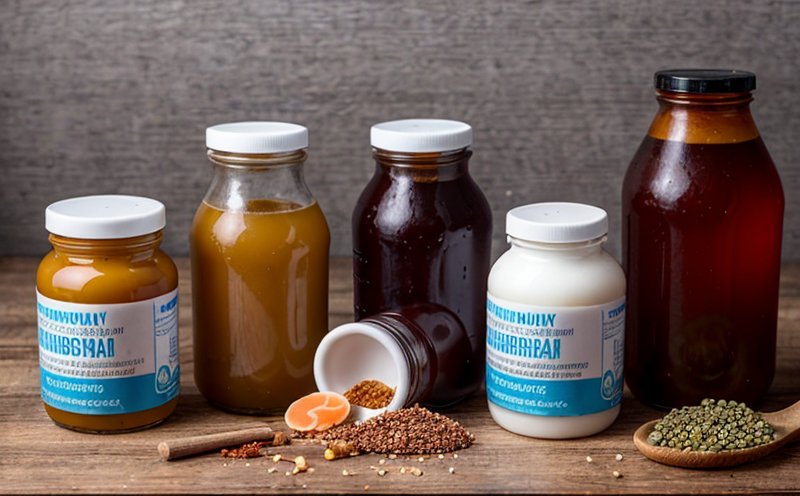USDA Safety Testing of Fermented Food Microbial Cultures
The United States Department of Agriculture's (USDA) Agricultural Marketing Service conducts safety testing on fermented food microbial cultures to ensure the products are safe for human consumption. This service is crucial in the probiotics and fermented product sectors, where ensuring microbiological quality and safety is paramount.
Microbiological contamination can lead to severe health issues such as foodborne illnesses. The USDA's rigorous testing ensures that any potential pathogens or harmful microorganisms are identified and addressed before products reach the market. This service supports compliance with international standards such as ISO 17025, which mandates proficiency in laboratory practices.
The process involves a series of steps designed to evaluate microbial safety, including culturing, identification, and quantification of microorganisms present in the fermented food cultures. Compliance officers must ensure that these processes are followed to maintain product integrity and safety standards.
For quality managers and R&D engineers, this service is essential for developing new products while adhering to strict safety protocols. The testing not only ensures compliance with legal requirements but also helps in maintaining a positive brand image by delivering safe and reliable products.
The USDA's testing covers a wide range of fermented products such as soy sauce, kimchi, sauerkraut, and other probiotic supplements. Each product has unique microbial profiles that require specific testing methods tailored to their characteristics. Understanding the microbial ecology of these products is critical for accurate testing.
The service also involves risk assessment, where potential hazards are identified and evaluated based on their likelihood and severity. This helps in prioritizing which tests need to be conducted more rigorously. The results from these tests provide valuable insights into the safety profile of the microbial cultures used in fermented products.
In summary, USDA safety testing ensures that fermented food microbial cultures meet stringent safety standards set by regulatory bodies. This service is vital for maintaining public health and ensuring that consumers can trust the safety of probiotics and fermented foods they consume.
Scope and Methodology
| Step | Description |
|---|---|
| Sample Collection | Collecting samples from the production process or final product. |
| Preparation | Preparing samples for analysis using appropriate media and techniques. |
| Culture | Growing microorganisms on selective media to identify potential pathogens. |
| Identification | Using biochemical tests, PCR, or other molecular methods to identify the microorganisms. |
| Quantification | Determining the number of viable cells present in the sample. |
| Method | Application |
|---|---|
| ISO 17025 Compliance | To ensure the laboratory's proficiency in conducting microbiological tests. |
| Aseptic Technique | To prevent contamination during sample handling and processing. |
| PCR Technology | For rapid identification of specific pathogens in the samples. |
Benefits
- Ensures compliance with USDA and FDA regulations.
- Reduces the risk of recalls due to microbial contamination.
- Improves brand reputation by delivering safe products.
- Aids in the development of new, innovative fermented products.
- Provides scientific data for product labeling and marketing.
Eurolab Advantages
Eurolab, as a leading laboratory in microbiological testing, brings extensive expertise and experience to the USDA safety testing of fermented food microbial cultures. Our team of highly qualified scientists and technicians ensures that every test is conducted with precision and accuracy.
We use state-of-the-art equipment and methodologies to ensure reliable results. Our laboratories are accredited to ISO 17025, ensuring a high standard of laboratory practices. This accreditation guarantees that our tests meet the highest quality standards required by regulatory bodies.
Our team offers comprehensive support throughout the testing process, from sample collection advice to detailed reporting and interpretation of results. We provide actionable insights that help clients make informed decisions about their products.





